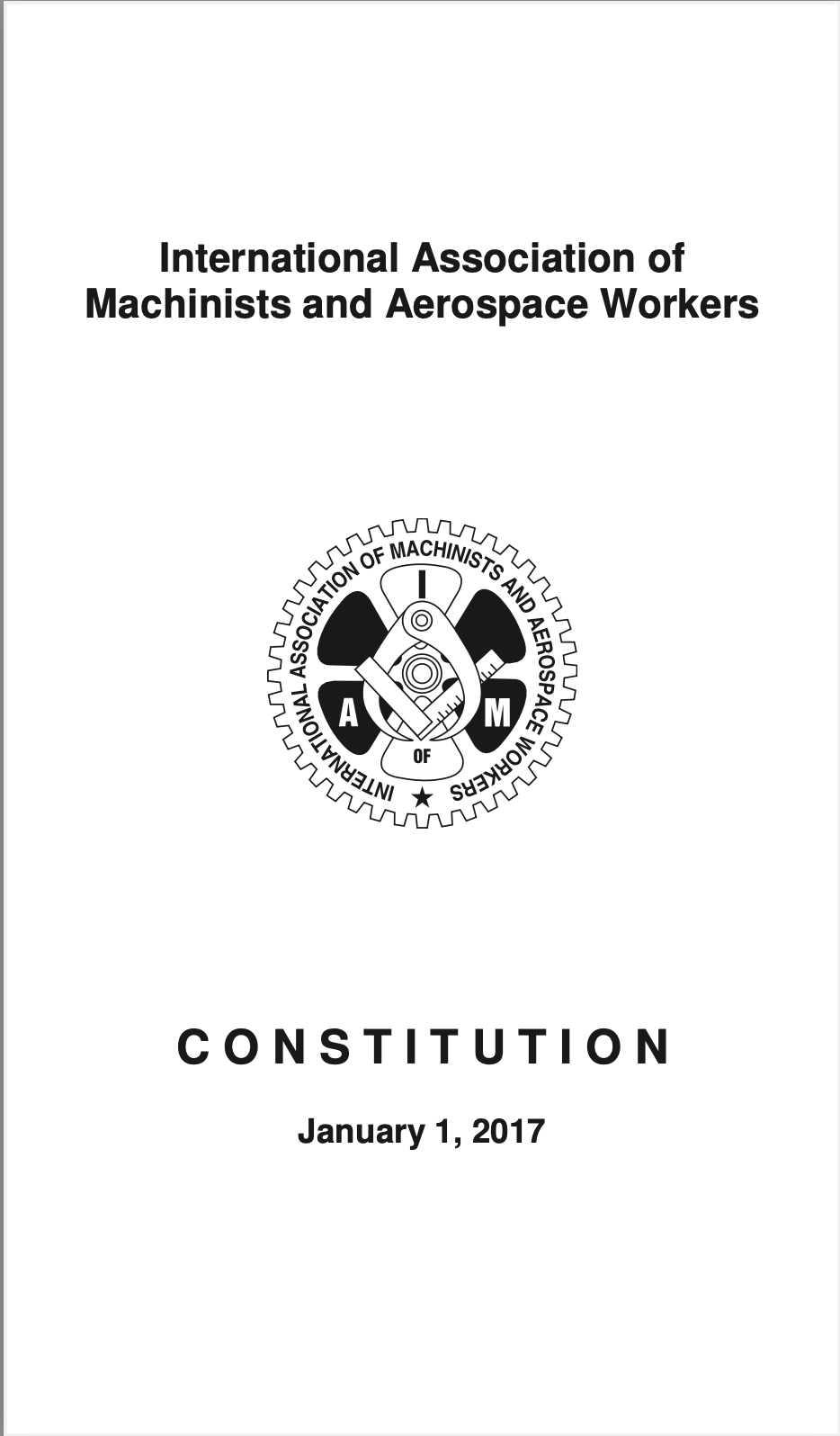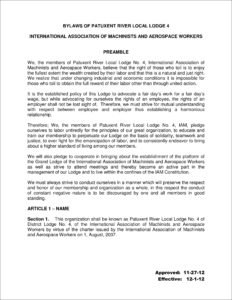We are the union…right?
Who Runs Things Here?
The union organizers will tell you that “you are the union;” that the union belongs to its members. This is one of the union’s biggest deceptions.
- From the moment a union wins at the ballot box, it takes over.
- Even before a contract can be negotiated, the rules and regulations in the union’s constitution and bylaws apply to every member.
The term “Constitution” is really a misnomer. A constitution is supposed to be a document spelling out your rights and freedoms.
- However, a union constitution consists mostly of the rules and regulations that the members must abide by, and the penalties for breaking those rules, including fines, legal action, employment action, and even trials.
- The constitution comes from the International Union (not your local) and also imposes restrictions on how your local can operate
Consider this – the US Constitution is 7 pages long – the 2017 IAM constitution is almost 200 pages long!
Better read the fine print. You don’t want to be caught breaking the unions rules.
What Are You Really Agreeing To?
So who really has the power to call strikes, raise dues, assess fees and fines, force you to picket another company (to show “solidarity”), put members or officers on trial? Is it “you?” Are “you” the union? Absolutely not. It is the International Union that wields the real power– just read the constitution!
- Each local has some level of flexibility within the International’s constitution to establish additional rules and regulations, and these are embodied in a set of bylaws.
So, if the union is able to negotiate a contract, you are subject to 3 different documents that will strictly regulate your work life:
- International constitution,
- Local bylaws, and
- Union employment contract
Please don’t underestimate the importance of these documents!
Obviously, you can’t see a bargained contract until you’ve elected a union. That’s why it’s even more important to secure a copy of the International’s constitution, and the local’s bylaws. These won’t come easily from the union, because these are not documents they want you to see, until after it is too late.
This website is provided as a resource for you and your family, as you consider whether or not to support union organizing efforts.
Whether to unionize is an extremely important decision. If voted in, a union would speak for you regarding all terms and conditions of your employment, including:
- your current and future pay
- the cost and structure of your health and other insurance plans, retirement plan and other benefits you currently enjoy
- your holidays, vacation and other forms of paid and unpaid leave
- whether many employment-related decisions are based on your merit, or simply upon your date of service
- whether you will have union dues deducted from your paycheck, and how much?
- the potential for strikes and possible permanent replacement during an economic strike

